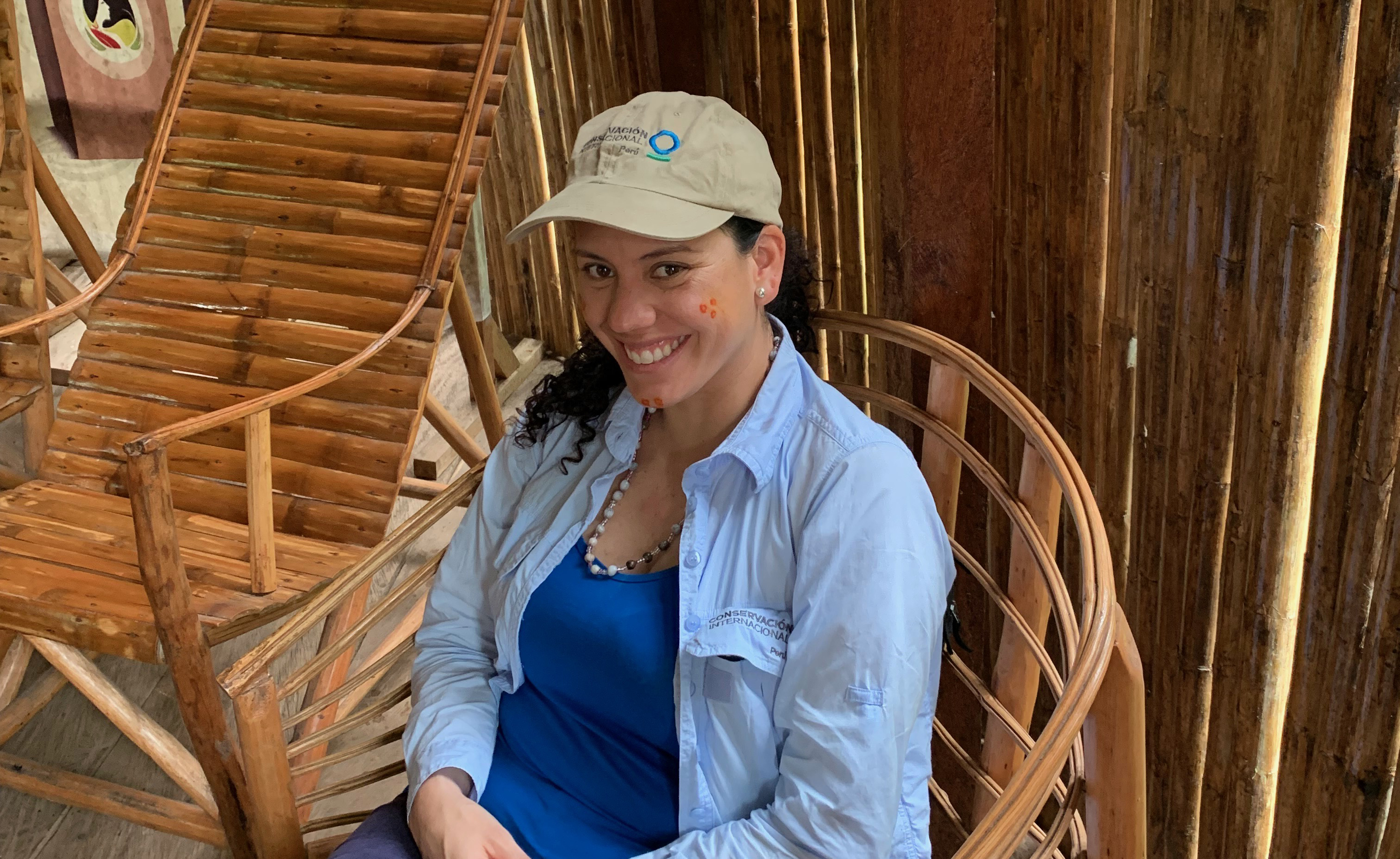Cecilia Gutiérrez is a forest engineer with a master's degree in social management. While studying for her degree, there were an equal number of men and women in her career, but for many of her professors, the sight of women operating chainsaws in the forest was a hard sight to come to terms with. Today, Cecilia is a monitoring and evaluation manager at Conservation International Peru and has been leading the institution's gender work for several years.

We talked to Cecilia about the importance of today's international holiday.
Why do you think women are not usually associated with the sciences while men are?
I think these beliefs respond to the roles that women have usually assumed. They have always been linked to care or assistance roles; before, most women were secretaries or participated in careers linked to assistance, human resources or caring for others. Men have always been seen as more resourceful and linked to number-crunching careers. However, in my years at university most of the top places in science careers were held by women. I think this is an idea of the past that we must fight against, to break this paradigm that we continue to inherit. In doing so, I am sure that many doors will open where we can be equally successful and recognized in the world of science.
Why are you interested in gender issues?
Despite studying engineering, I have always liked social issues. When I started working at Conservation International eight years ago, we began our work in native communities, especially with women, and I saw that there was a lot to do. Witnessing the process of their empowerment has been very enlightening. CI provided the opportunity to receive specific gender training and lead the organization's gender approach, all while being part of the transformation processes of a group of women. How could I say no to that opportunity!
A before and after:
One of the projects I am currently leading, thanks to the support of USAID and the RISE Challenge, focuses on addressing gender-based violence in one of the communities where we work. I listened to the testimonies of many women who have been victims of violence, and it was a shocking, eye-opening experience. In contexts like these, we can't just worry about women producing cassava, reforesting or recovering their ancestral knowledge, but about guaranteeing their rights – that, at least, they get a chance to decide how many children to have. Listening to these testimonies has been something that will stay with me forever.
How does a holiday like today contribute to gender equity?
I think this date is important because it is a kind of vindication; we see it in the rights of girls and women, and we see it in education. Women usually have much less access to study than men, and in rural areas it is much worse because motherhood happens practically in adolescence. If you are a rural woman and you manage to make it to university, it is considered a heroic act; it's pretty much epic, and even more so if you pursue a scientific career.
What gives you hope?
What gives me hope is really seeing that this initial work we are doing to address violence in a single small community can have an impact on other people's lives. That it doesn't just stop there; at CI we can implement other initiatives that can apply this focus in all of our projects, and that all our colleagues and partners are truly aware of the importance of providing equal opportunities for both men and women, rethinking how our actions can impact men and women differently. The development we seek is integral to really achieve the sustainable development we are talking about, for boys, girls, men and women alike.